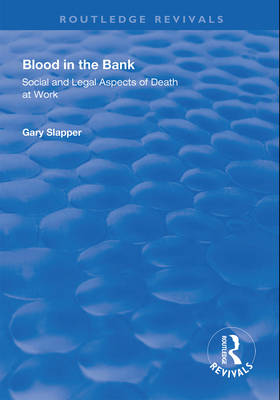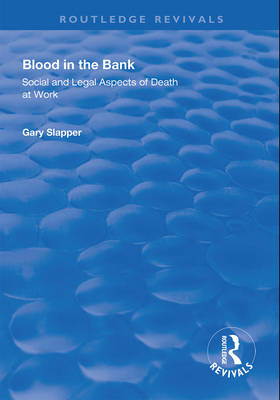
- Afhalen na 1 uur in een winkel met voorraad
- Gratis thuislevering in België vanaf € 30
- Ruim aanbod met 7 miljoen producten
- Afhalen na 1 uur in een winkel met voorraad
- Gratis thuislevering in België vanaf € 30
- Ruim aanbod met 7 miljoen producten
Zoeken
€ 155,45
+ 310 punten
Uitvoering
Omschrijving
First published in 1999, this volume is based upon a detailed empirical study of 40 cases of commercially-related deaths - the first such English study. The cases are taken from 20 towns and cities in England. Slapper critically examines the theory and practice of the legal response to such deaths. The conduct of the Health and Safety Executive, the police, coroner, lawyers and the Crown Prosecution Service are analyzed in detail. He executes his analysis in three stages: events are first scrutinized in the context of the law that governs them; the deaths and official responses are then considered in the context of the psychology of the decision-makers; and finally the dramas are looked at in a wider context of political economy. Slapper draws several disturbing conclusions. His original empirical research, based on attending coroner's hearings and interviewing those interviewing those involved in enforcing safety laws, shows how and why potentially criminal behaviour at work is constructed as merely regulatory misbehaviour or even as no more than an unavoidable 'accident'.
Specificaties
Betrokkenen
- Auteur(s):
- Uitgeverij:
Inhoud
- Aantal bladzijden:
- 284
- Taal:
- Engels
- Reeks:
Eigenschappen
- Productcode (EAN):
- 9781138611672
- Verschijningsdatum:
- 18/09/2018
- Uitvoering:
- Hardcover
- Formaat:
- Genaaid
- Afmetingen:
- 152 mm x 229 mm
- Gewicht:
- 684 g

Alleen bij Standaard Boekhandel
+ 310 punten op je klantenkaart van Standaard Boekhandel
Beoordelingen
We publiceren alleen reviews die voldoen aan de voorwaarden voor reviews. Bekijk onze voorwaarden voor reviews.











